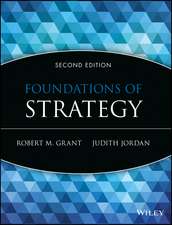Symposium on the Theory of Scheduling and Its Applications: Lecture Notes in Economics and Mathematical Systems, cartea 86
Editat de S. E. Elmaghrabyen Limba Engleză Paperback – 14 noi 1973
Din seria Lecture Notes in Economics and Mathematical Systems
-
 Preț: 360.02 lei
Preț: 360.02 lei -
 Preț: 383.93 lei
Preț: 383.93 lei - 15%
 Preț: 693.39 lei
Preț: 693.39 lei -
 Preț: 384.09 lei
Preț: 384.09 lei -
 Preț: 380.07 lei
Preț: 380.07 lei -
 Preț: 446.26 lei
Preț: 446.26 lei -
 Preț: 497.37 lei
Preț: 497.37 lei -
 Preț: 380.84 lei
Preț: 380.84 lei -
 Preț: 384.86 lei
Preț: 384.86 lei -
 Preț: 378.34 lei
Preț: 378.34 lei -
 Preț: 399.67 lei
Preț: 399.67 lei - 20%
 Preț: 360.93 lei
Preț: 360.93 lei - 15%
 Preț: 643.16 lei
Preț: 643.16 lei -
 Preț: 379.09 lei
Preț: 379.09 lei -
 Preț: 404.76 lei
Preț: 404.76 lei -
 Preț: 385.62 lei
Preț: 385.62 lei - 15%
 Preț: 644.49 lei
Preț: 644.49 lei -
 Preț: 379.09 lei
Preț: 379.09 lei -
 Preț: 345.50 lei
Preț: 345.50 lei -
 Preț: 425.80 lei
Preț: 425.80 lei -
 Preț: 378.34 lei
Preț: 378.34 lei - 18%
 Preț: 775.65 lei
Preț: 775.65 lei -
 Preț: 392.60 lei
Preț: 392.60 lei -
 Preț: 401.61 lei
Preț: 401.61 lei - 15%
 Preț: 646.43 lei
Preț: 646.43 lei -
 Preț: 382.18 lei
Preț: 382.18 lei -
 Preț: 378.34 lei
Preț: 378.34 lei - 15%
 Preț: 637.59 lei
Preț: 637.59 lei - 15%
 Preț: 647.27 lei
Preț: 647.27 lei -
 Preț: 377.73 lei
Preț: 377.73 lei -
 Preț: 447.84 lei
Preț: 447.84 lei - 15%
 Preț: 644.49 lei
Preț: 644.49 lei -
 Preț: 386.00 lei
Preț: 386.00 lei - 15%
 Preț: 654.43 lei
Preț: 654.43 lei -
 Preț: 415.02 lei
Preț: 415.02 lei -
 Preț: 411.54 lei
Preț: 411.54 lei -
 Preț: 398.92 lei
Preț: 398.92 lei -
 Preț: 398.92 lei
Preț: 398.92 lei -
 Preț: 392.75 lei
Preț: 392.75 lei - 15%
 Preț: 635.47 lei
Preț: 635.47 lei - 20%
 Preț: 653.56 lei
Preț: 653.56 lei -
 Preț: 379.86 lei
Preț: 379.86 lei -
 Preț: 495.46 lei
Preț: 495.46 lei -
 Preț: 447.99 lei
Preț: 447.99 lei -
 Preț: 378.71 lei
Preț: 378.71 lei - 15%
 Preț: 637.13 lei
Preț: 637.13 lei -
 Preț: 385.84 lei
Preț: 385.84 lei -
 Preț: 378.54 lei
Preț: 378.54 lei - 15%
 Preț: 666.55 lei
Preț: 666.55 lei
Preț: 653.33 lei
Preț vechi: 768.62 lei
-15% Nou
Puncte Express: 980
Preț estimativ în valută:
125.03€ • 135.76$ • 105.02£
125.03€ • 135.76$ • 105.02£
Carte tipărită la comandă
Livrare economică 22 aprilie-06 mai
Preluare comenzi: 021 569.72.76
Specificații
ISBN-13: 9783540064374
ISBN-10: 3540064370
Pagini: 452
Ilustrații: VIII, 440 p.
Dimensiuni: 178 x 254 x 24 mm
Greutate: 0.78 kg
Ediția:Softcover reprint of the original 1st ed. 1973
Editura: Springer Berlin, Heidelberg
Colecția Springer
Seria Lecture Notes in Economics and Mathematical Systems
Locul publicării:Berlin, Heidelberg, Germany
ISBN-10: 3540064370
Pagini: 452
Ilustrații: VIII, 440 p.
Dimensiuni: 178 x 254 x 24 mm
Greutate: 0.78 kg
Ediția:Softcover reprint of the original 1st ed. 1973
Editura: Springer Berlin, Heidelberg
Colecția Springer
Seria Lecture Notes in Economics and Mathematical Systems
Locul publicării:Berlin, Heidelberg, Germany
Public țintă
ResearchCuprins
I. Survey Papers.- “A Critique of Project Planning with Constrained Resources”.- “Sequencing Research and the Industrial Scheduling Problem”.- II. Applications.- “The Engine Scheduling Problem in a Railway Network” — Abstract.- “Detail Scheduling Models and Systems”.- “A Naval Air Rework Facility Scheduling Problem”.- “Some Scheduling Applications in Chemical Industry”.- “A Solution to a Special Class of Flow Shop Scheduling Problem”.- “Two Recent Developments in Scheduling Applications”.- “Toward a Man-Machine Interactive System for Project Scheduling”.- III. Theory.- “Efficient Solution Procedures for Certain Scheduling and Sequencing Problems”.- “On the Set Representation and the Set Covering Problem”.- Discussion of Murty’s paper.- “Selected Comments Concerning Optimization Techniques for Functions of Permutations”.- Discussion of Rau’s paper.- IV. Models of Processes.- “An Out-of-Kilter Approach for Machine Sequencing Problems”.- “Trading Rules for a Decentralized Exchange Economy”.- “Scheduling with Early Start and Due Date Constraints” — Abstract.- “The Scheduling of a Multi-Product Facility”.- “The Two-Machine Job Shop with Exponential Processing Times”.- “Optimal Solutions of Scheduling Problems Using Lagrange Multipliers, Part II”.- Discussion of Fisher’s paper.- “On Project Cost-Duration Analysis Problem with Quadratic and Convex Cost Functions”.- “A Problem in Single Facility Scheduling with Sequence Independent Change-Over Costs”.- “Random Patrol Scheduling Under Operational Constraints”.- “Interaction Between Aggregate and Detailed Scheduling in a Job Shop” — Abstract.- “An Extension of Moore’s Due Date Algorithm”.- “Solving Scheduling Problems byApplying Cost Operators to Assignment Models”.- “Some Extensions of Akers-Friedman Production Scheduling Problem”.- “On a Feasibility Approach to Optimal Schedules”.











